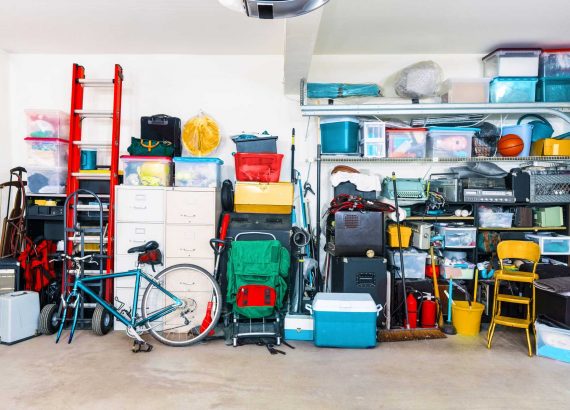How to deal with post-adrenaline blues

It’s almost the end of November and many people here in South Africa are wrapping up projects, either at work, university or school. This means that many people have worked a good portion of the year on a project that will end soon. This can lead to post-adrenaline blues, and we’ve all been there. So, I’m here to help you out with information on how to deal with post-adrenaline blues.
What exactly is it?
Have you ever binge-watched a series the entire day (or maybe a couple of days) and then when it’s done you feel kind of empty? That’s a form of post-adrenaline blues.
Let me relate it more to the work or school environment. We all know how it goes when you’re working on a big project, or have a deadline coming up. You don’t take care of yourself like you’re supposed to, and you don’t see your friends and family as often as you want to. You pour your heart, soul, and time into this thing and probably look forward to it ending so that you can breathe again.1
Then suddenly, it’s over and you feel… weird. It’s strange because you thought you’d be relieved, but now you have this melancholy about you. I don’t want to say you feel depressed, but something isn’t quite right. You’re thrown into this new state of non-chaos that you’re not used to.1
You may feel empty and wonder what’s the purpose of everything (for me at least) like you don’t know what to do with yourself and all this time you suddenly have.2,3
There are many names for this condition: post-adrenaline blues (my preferred term), post-event let down, or post-project depression, and many others.1
Why does this happen?
When you’re stressed, your body releases the fight-or-flight chemicals. This is exactly what your body does when you are working under pressure for the event or project. Your body is releasing stress hormones like cortisol and adrenaline. After the project or event is over, your body is not secreting as much of these chemicals because much of the stress has disappeared. Basically, your body is going through withdrawal from these chemicals.1,2,4
You may also notice that you have head-aches or other physical pains during the post-adrenaline blues period. Most of this is also influenced by the chemicals that are not secreted.4
Another thing that makes it worse is your expectation of feeling relief after the project but then you feel terrible (post-adrenaline blues).1,2
Luckily, there is some good news. Post-adrenaline blues is perfectly normal and many people experience it.3 I’ve heard that some academics experience it after a conference talk, it can also happen to athletes. It’s also quite common if you have work that fluctuates like events coordination.1 I know I experienced it every semester after a series of tests, or after I’ve marked those last tests and essays after a long semester of teaching. Suddenly, I feel like I don’t know what to do with yourself.
Also, it doesn’t last forever, it can be over within a couple of days, but can also stretch to a few weeks. If you know what it is causing your blues and which strategies you can use to make it go away sooner, then the better. You can get back to the old-you as soon as possible.1
Prevention is better than cure
One way that you can avoid post-adrenaline blues is to act in a preventative way. Rather pace yourself with work or projects and keep yourself healthy by eating a healthy diet, exercise, sleep and so on. So then you avoid that build-up of stress that releases all those stress hormones.4
However, if this was not possible, there are other ways of dealing with it.

How to recover
The most important thing to remember is that post-adrenaline blues are normal. Be gentle with yourself.1
The most critical time is the first three to four days after the event, so you want to do as much as you can to prevent post-adrenaline blues from lingering.4
Here are a few strategies that you can try out.
Take a break
After the major project or event, take some time to recover. Take things slowly for a while, even just a week of taking it easy can help a lot. ‘Reset’ yourself before you go on to the next thing.1
Celebrate the success
Celebrate the successful completion of the project. Do that in whichever way you feel comfortable with. If you want to spend time on your creative side projects or game, or clean that house, or just rest – go do that.3
Look after your health
While you’re in the recovery period, you must take care of your health. This includes eating healthy food, drinking water, exercising (can be walking or yoga), getting between 7 to 8 hours of sleep per night, and relaxing.1,2
After a stressful period, your body’s immune system also suffers as it struggles to deal with the deficiency of stress. Therefore, post-adrenaline blues could also be the reason some people get sick after a stressful time and not during it as you would expect. Some people also get a “let-down headache”.4
Talk to and spend time with loved ones
After the project, you can also spend some time with friends and family who may have been neglected while you were super busy. Also, be sure to tell them if you are suffering from post-adrenaline blues, to make sure they don’t think it’s them.1 Remember, friends and family are there to support you through tough times. Most of them would encourage you to talk about what’s bothering you.5
Ease into the calmness
Another way to fight these blues is to let your body slowly get used to the calmness. You basically try to keep the stress levels up and take things down a notch over some time. I don’t think this is an easy thing to do, but the science makes sense.4
You can do exercises, something like HIIT or to get the grey matter working, you can do puzzles or play chess (with a time pressure component).4
Get back to a routine
Get back to your normal daily routine – you know, the one you had before the project took over your life. Also make a point of getting back to your sleeping and eating patterns, as well as your social patterns.1
A routine makes you feel like you have a bit of direction and purpose after a stressful time or event. You can have a list of the things you want to include in your routine – which will probably include a lot of the things you have been neglecting.5
Be grateful
Another thing you can do is to focus on being grateful. It will help you shift your negative thoughts to positive ones and help the return of those feel-good hormones. There are several ways in which you can practise gratefulness – like physically thanking people or having a gratitude journal.1
Deal with the feelings
Don’t deny your emotions. Feel whatever you need to feel, it’s a part of the process. You basically lost this big thing; you are allowed to ‘mourn’ it.3
Reflect on the event
Evaluate the event. Whatever it was, do a bit of critical analysis on it. How did it go? Good or bad? Are there areas that you felt you did really well in and grew? Are there areas where you still need to learn more? How would you do things next time? Ask people what they thought about the event and analyse how you could do things differently next time, and what you did well at the event.1 After that you can start asking yourself what you’d like to do next (just think about it, not do).3
Don’t jump into the next project
When you’re feeling down after a project, you might think it a good idea to jump into a next project, but that’s a bad idea. You first need to wrap up the first project properly. Make sure that all loose ends are tied before you go on with something else. Then you can put the project mentally into a box and pack it away in your brain.1
The most important thing is to give yourself enough time to recover from the previous project before you take on a whole new project.3
Set new goals
After the big project or event, you wonder what you’re doing with your life, or wonder how you’re going to fill the time, so it’s important to set new goals. You don’t have to get on them right away (see the previous point), but it’s something to look forward to tackling. You can just start with small steps when you’re still recovering.1
Think about what inspires you before you take on a new project. Something that you can really commit to. Then you can start planning the new project. It’s great to be excited about a new project, but if you’re unsure what to tackle next, rather let the idea ‘simmer’ a bit until you are sure.3
Other tips
Remind yourself that post-adrenaline blues is a temporary state – it won’t last forever. It’s amazing how much we can get through if we just remind ourselves of this.5
If you still experience post-adrenaline blues after a few weeks of the completion of the project, it may be a good idea to talk to a professional counsellor or psychologist.3
Do you have any stories of your post-adrenaline blues? How did you deal with it? I’d love to hear from you in the comments.
Contemplative meh.
Michelle
P.S. If you’d like to contact me, feel free to comment below, send an email to thatmichelleperson@gmail.com, or follow me on Twitter @M_ClutterBox.
I used these sources:
- https://medium.com/@speakerhubHQ/7-practical-ways-to-battle-the-post-event-blues-8600fa62351b
- https://www.psychologytoday.com/us/blog/growing-friendships/201409/post-adrenaline-blues
- https://www.transitioningyourlife.com/now-youre-done-post-project-depression/
- https://health.usnews.com/health-news/health-wellness/articles/2016-01-06/the-let-down-effect-why-you-might-feel-bad-after-the-pressure-is-off
- https://www.takethis.org/expert-content/how-to-handle-con-crash-like-a-pro/










Sadie
This is good advice and I feel like these days just going to the grocery store is an adrenaline adventure.
That Michelle Person
I know right? 2020 has been a cruel mistress. The end is in sight, though. You can do it 🙂
Thanks for reading 🙂